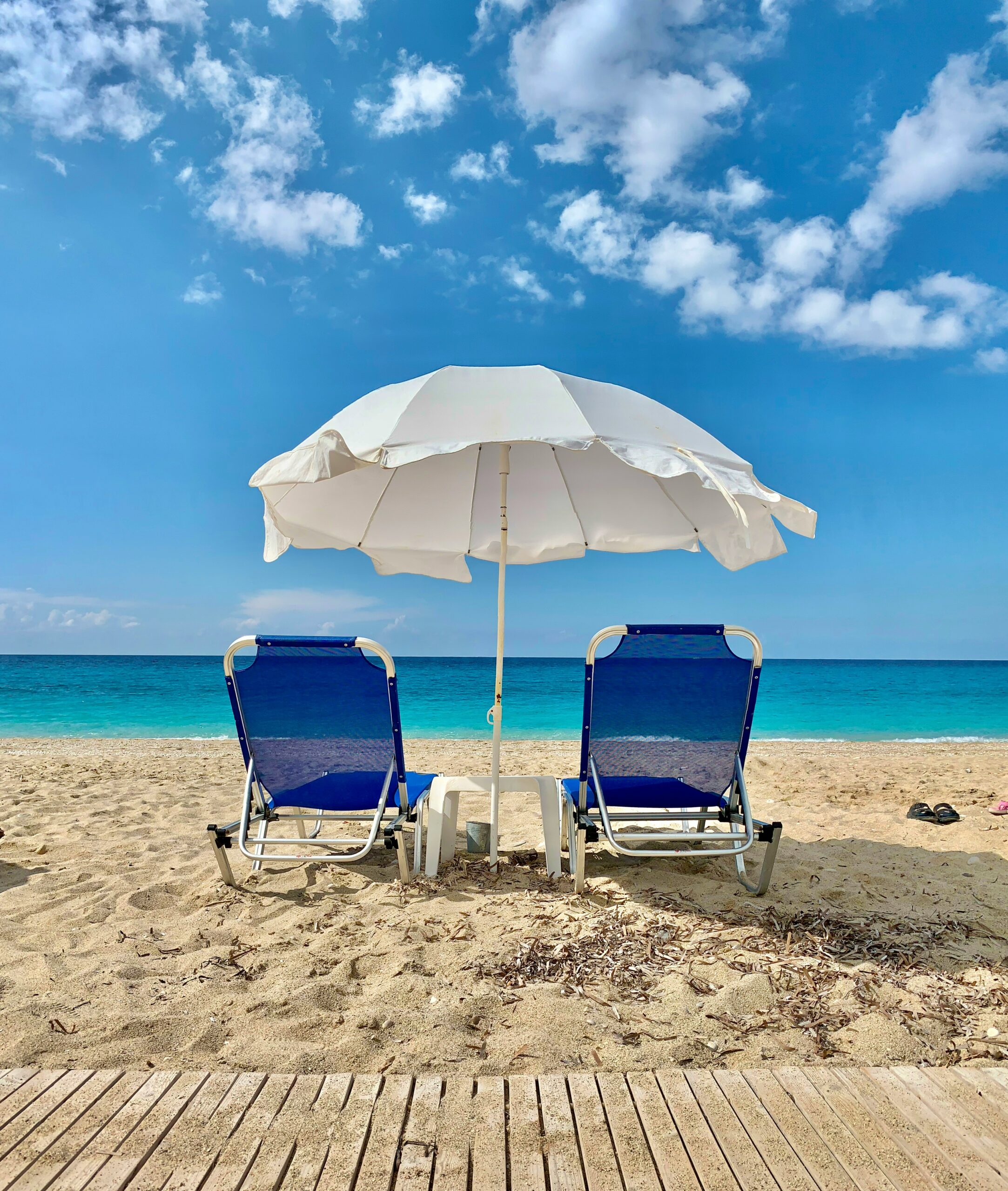
It’s mid-summer here in the northern hemisphere, and while students and teachers are enjoying the sun and warm weather, some are finding time to squeeze in a bit of BioBuilder learning too!
Read on to learn about BioBuilder’s summer 2025 student programs. And don’t forget to check out the sidebar about this summer’s teacher professional development workshop.
Summer Research Program
This summer, two cohorts of high school students are diving into BioBuilder’s Summer Research Program: one at the Learning Lab@Ginkgo in Boston’s Seaport District and the other at our new Learning Lab@Allston Labworks in Boston’s Allston District.
Both groups are using BioBuilder content to launch their own independent biodesign and bioengineering projects. Throughout the two week, 9am to 4pm, immersive program, students develop their lab skills and learn how to design a synthetic biology system as they work in groups to design their own projects.
On the final day of the sprint, the students present their project designs at a gathering of family, friends, and local science professionals.
Learning Lab@Ginkgo Bioworks
BioBuilder’s Dr. Danielle Gutelius and Allie Leslie taught the Seaport class of 24 eager students. And it was an incredibly diverse group with students coming from New Jersey, Beijing, Vancouver, Taiwan, and throughout the greater Boston area. Two West Point cadets also joined the group for the first week’s fun to learn more laboratory techniques!
During Week 1, the students worked hard on developing specific lab skills and gaining a thorough understanding of lab techniques that are involved in generating a bacterial system in synthetic biology. They used those skills to transform a plasmid of interest into a bacterial cell line, and then verified its DNA, inducing protein expression, and purified the protein product.
Amazingly, the students also squeezed in some shorter labs that allowed them to see the importance of chassis selection and the various types of outputs available. This understanding will be very useful as they design their group projects in Week 2.
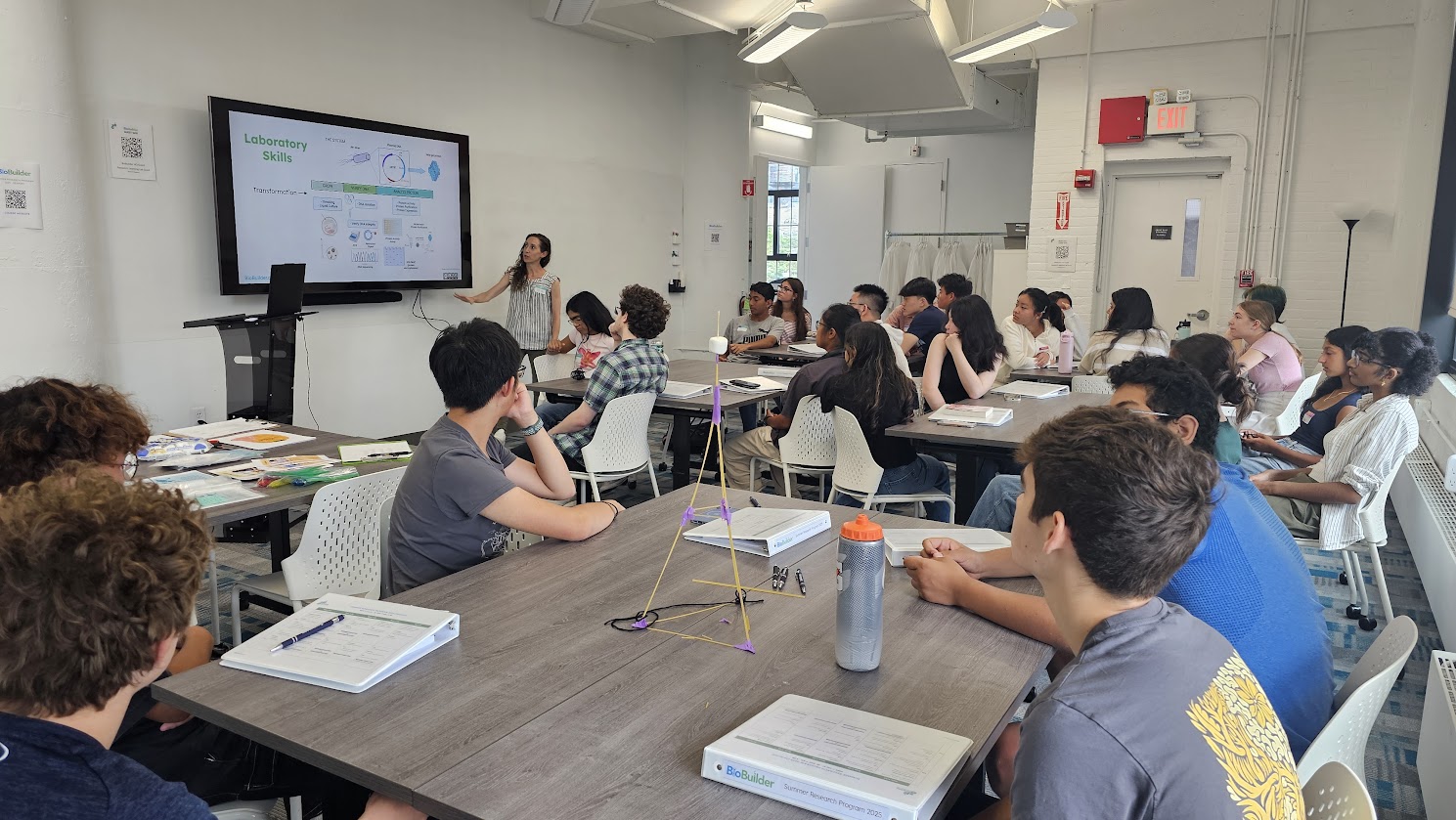
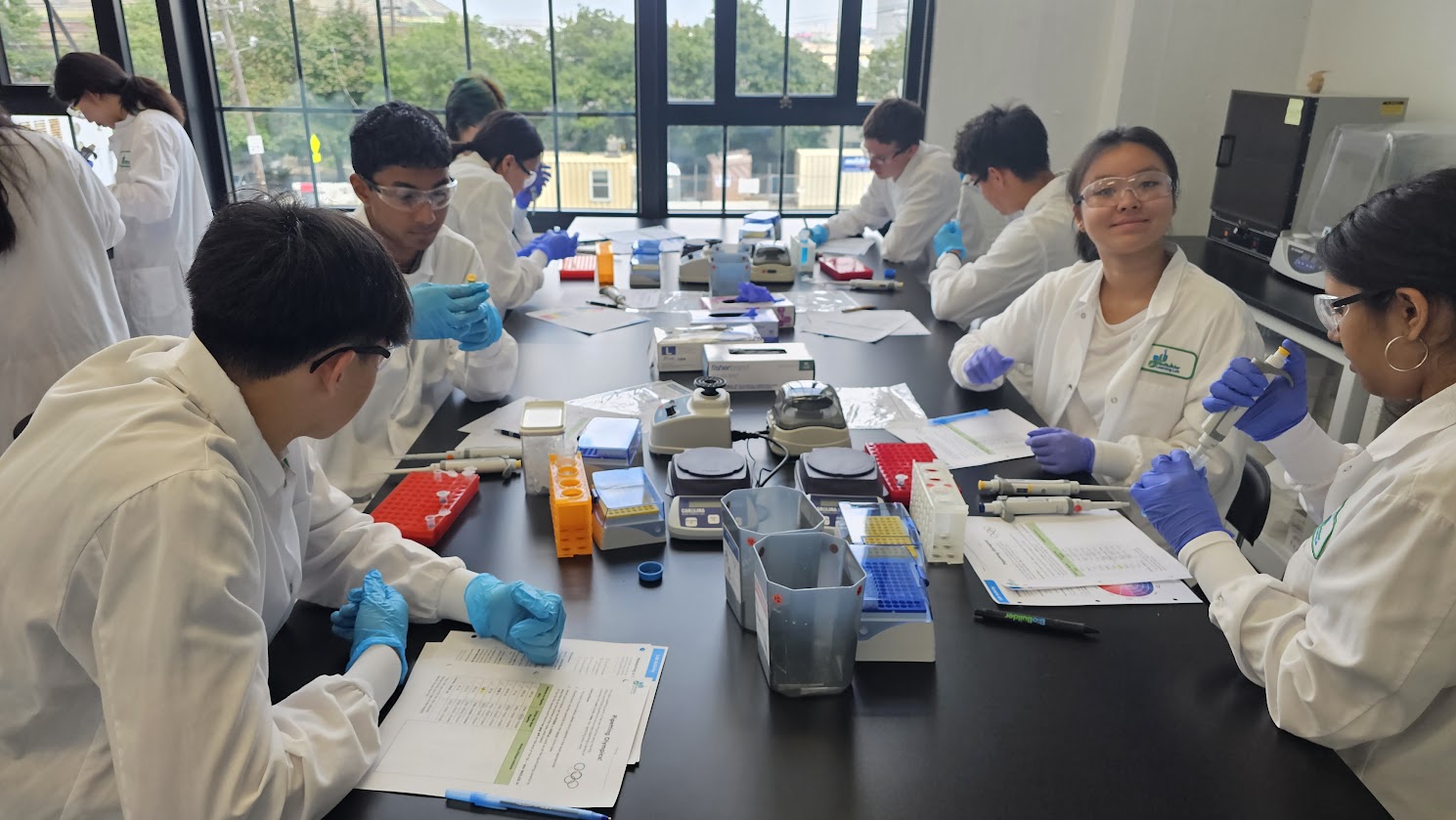
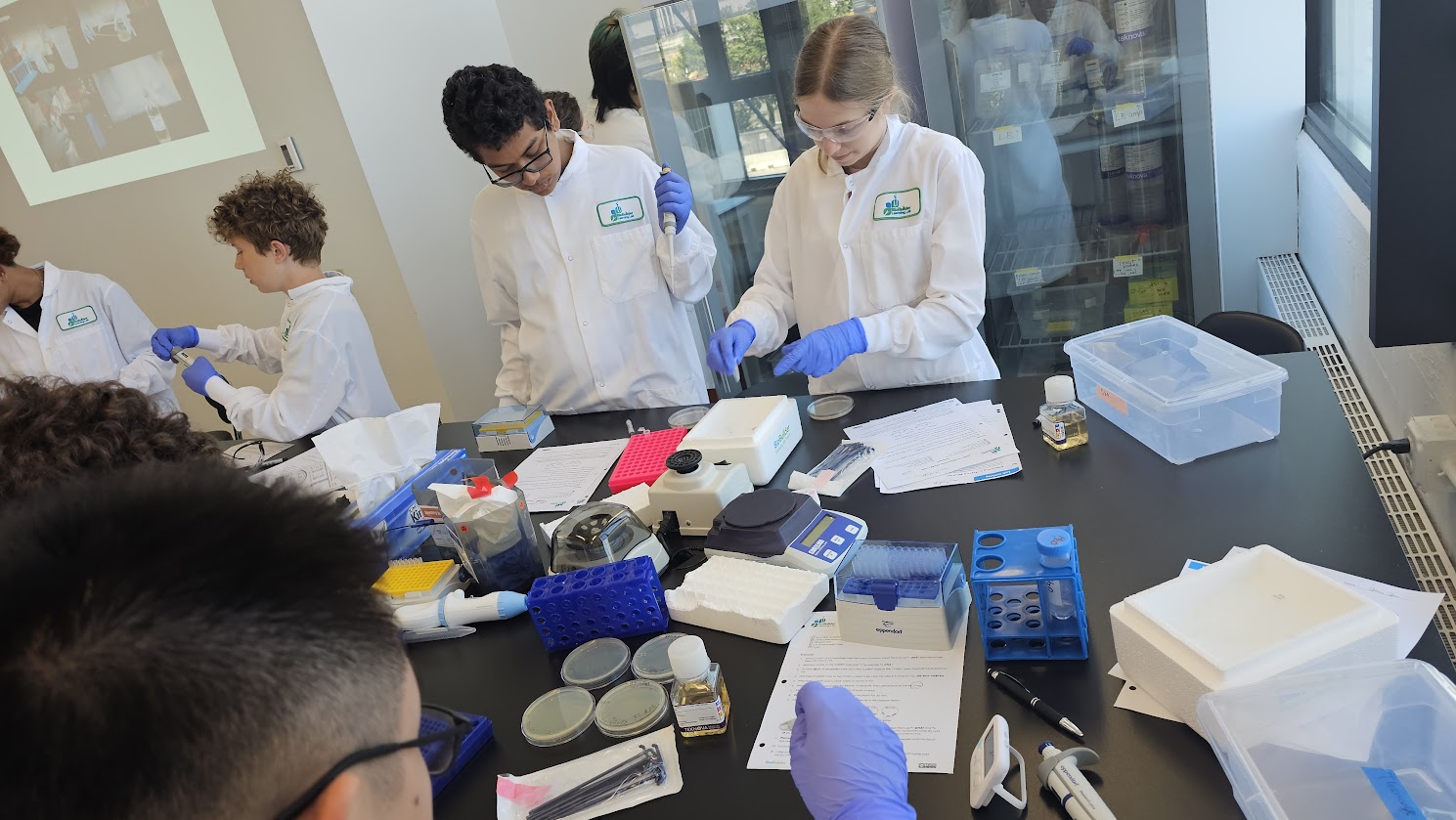
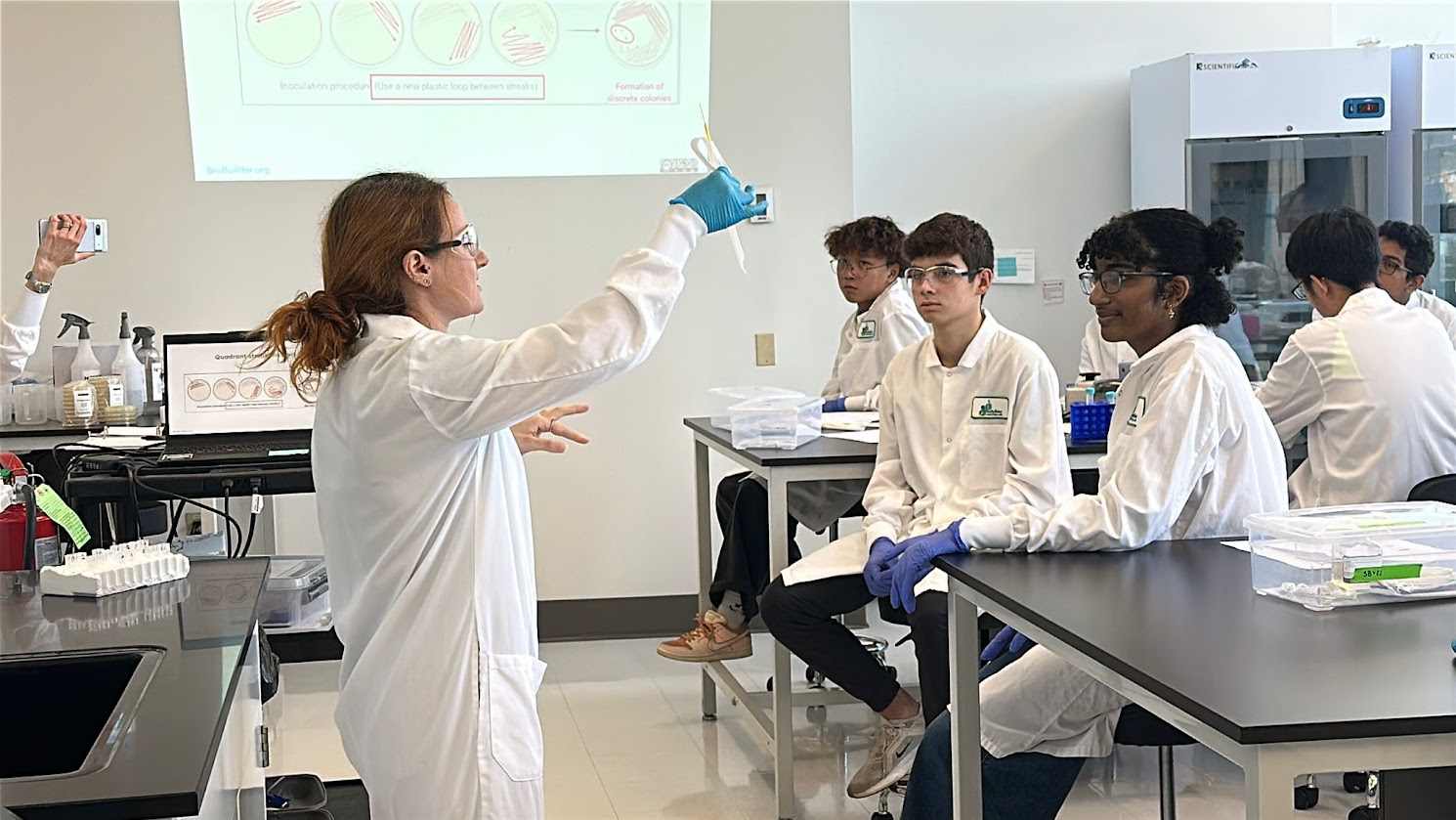
The students have become much more comfortable with making and learning from mistakes, analyzing results, troubleshooting, and asking for help”
– Dr. Gutelius happily explains
A special surprise in Week 1 was a visit by the Boston BOSLab iGEM team who gave our students an overview of their 2025 iGEM project. The team also ran them through a protocol in which the students set up water samples from local waterways to evaluate for algal growth. The team will return next week to analyze the results and also give the students feedback on their group project designs.
During week 2, the students will focus on completing the design of their own group projects. There will also be a tour of Ginkgo Bioworks and several guest speakers, including three graduate students from the MIT Department of Biological Engineering. Amidst all of this excitement, the student teams will prepare to present their projects on the final day of the program.
One of the greatest parts of this program is seeing the students become confident in their lab skills and their ability to work through problems”
– Dr. Gutelius
Learning Lab at Allston Labworks
Another group of high schoolers completed the two-week Summer Research Program at BioBuilder’s newest lab, the Learning Lab@Allston Labworks. BioBuilder’s Dr. Hiroko Kaczmarek led the Allston group of 20 Boston area students through the same lessons, hands-on lab work, and guest speakers as the Seaport class, and they developed their own synthetic biology designs.
Dr. Kaczmarek is re-amazed every year at how much the students love being in the lab, but also how they absorb the material they are bombarded with!
They have quickly become expert pipetters and very good at following protocols in the lab”
says a very happy Dr. Kaczmarek!
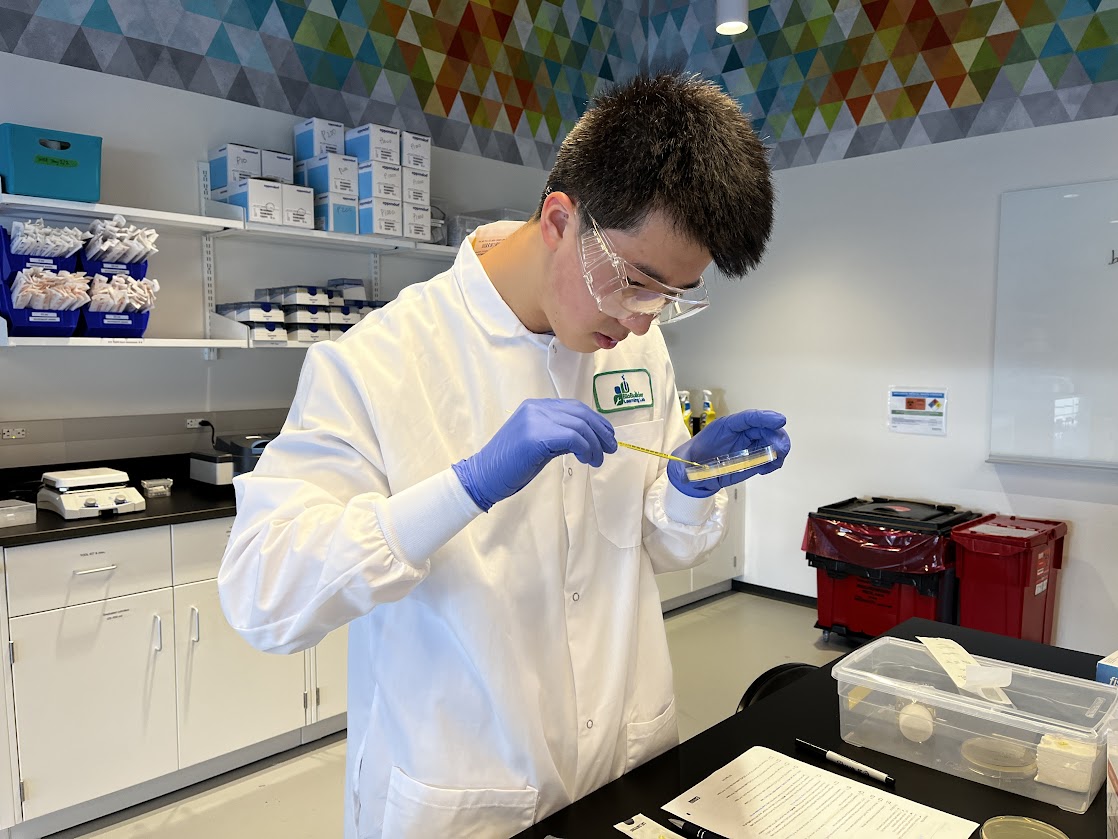
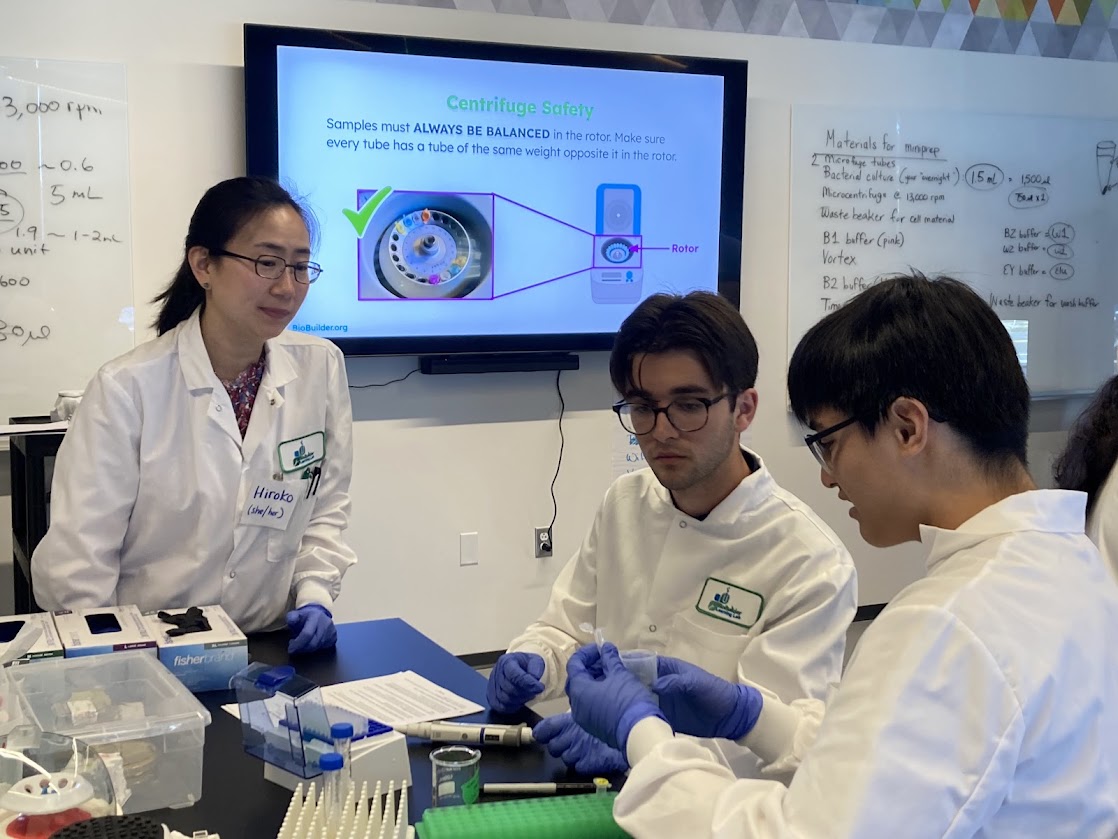
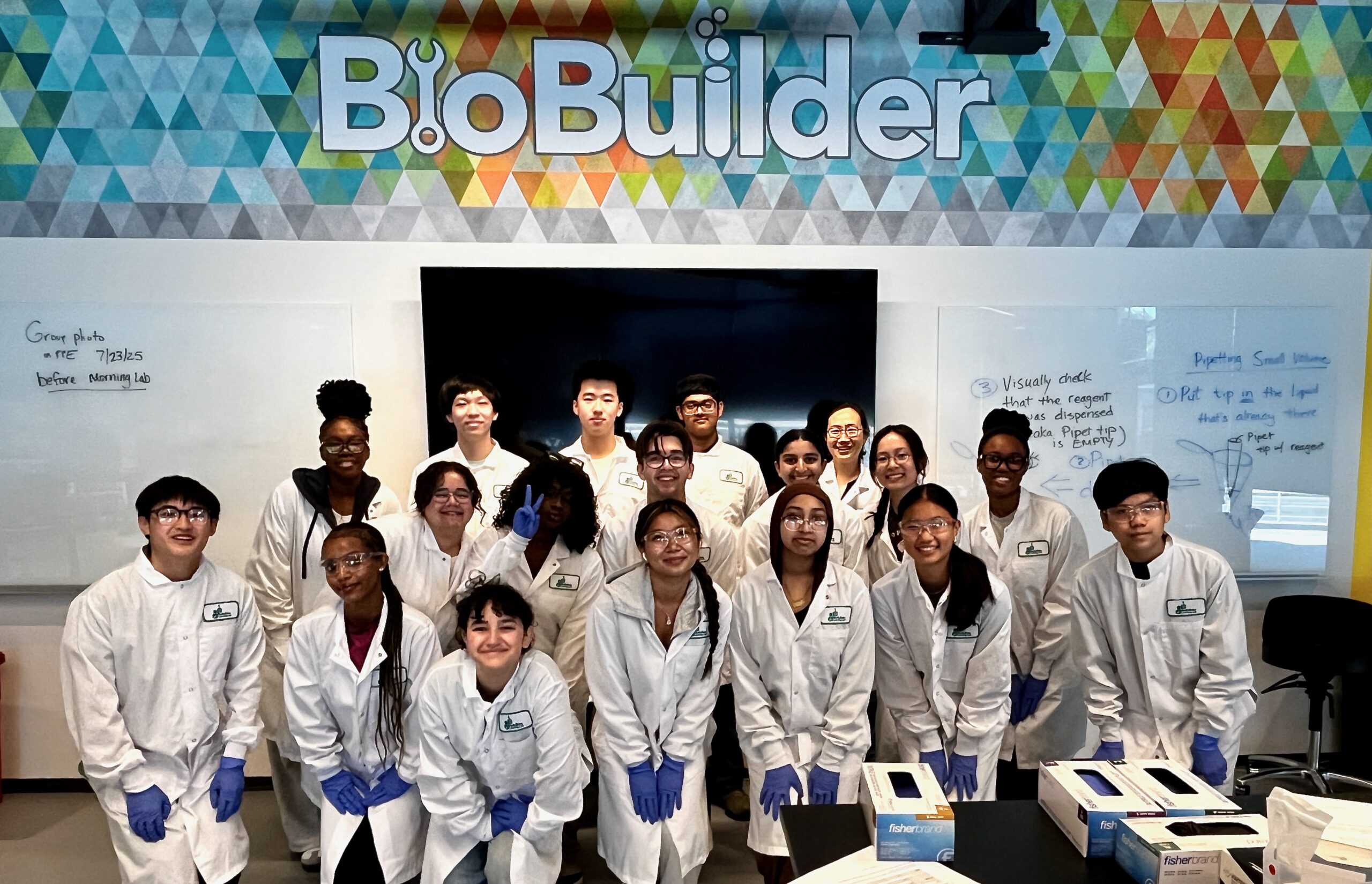
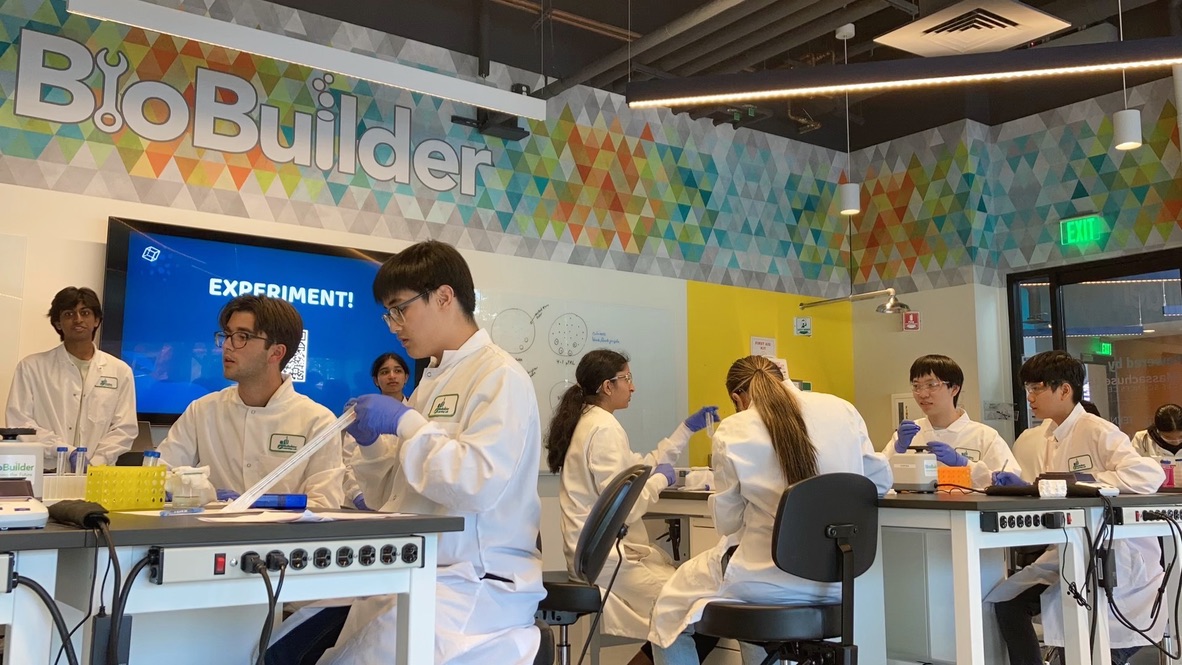
Both classes will gather at BioBuilder’s Learning Lab @LabCentral on August 1st to present their biodesign projects to a gathering of their families and friends, as well as local science professionals and BioBuilder team members. Can you feel their excitement (and maybe their nervousness!)? We know how hard – and smart! – they’ve worked this summer, and we look forward to seeing their amazing designs!
“I am just impressed and awed by these young scholars,” says Dr. Kaczmarek. “Some have a very long commute yet always show up on time and ready to learn.”
Expedition: Bio
Expedition: Bio is a forward-thinking program of the Whitehead Institute for Biomedical Research (WIBR) that helps introduce middle schoolers to synthetic biology and, hopefully, get them interested in learning more as they proceed through middle school, high school, and beyond.
BioBuilder partners with WIBR to provide their summer campers with additional classroom learning as well as hands-on lab learning during the second week of the two-week program.
So far this summer, BioBuilder has hosted one group of 23 Expedition: Bio students at the Learning Lab@Allston. BioBuilder’s Joe Switzer and Kate Bacon Schneider have been teaching Expedition: Bio students for several years, and they are delighted every year by the enthusiasm of these 7th and 8th grade students!
These budding scientists are introduced to several synthetic biology topics:
- The basics of the DNA to RNA to protein pathway
- Enzyme activity
- Bacterial transformation using plasmids
- Polymerase chain reactions
Each of these topics is examined through daily lab activities such as enzyme assays, bacterial transformation, PCR, and gel electrophoresis.
The students’ lab learning is supported and reinforced with visual and discussion-based classroom activities:
- Decoding DNA to find the traits of illustrated dragons
- Using toothpicks to demonstrate enzyme reactions
- Discussing different foods created using synthetic biology and if the students would eat them.
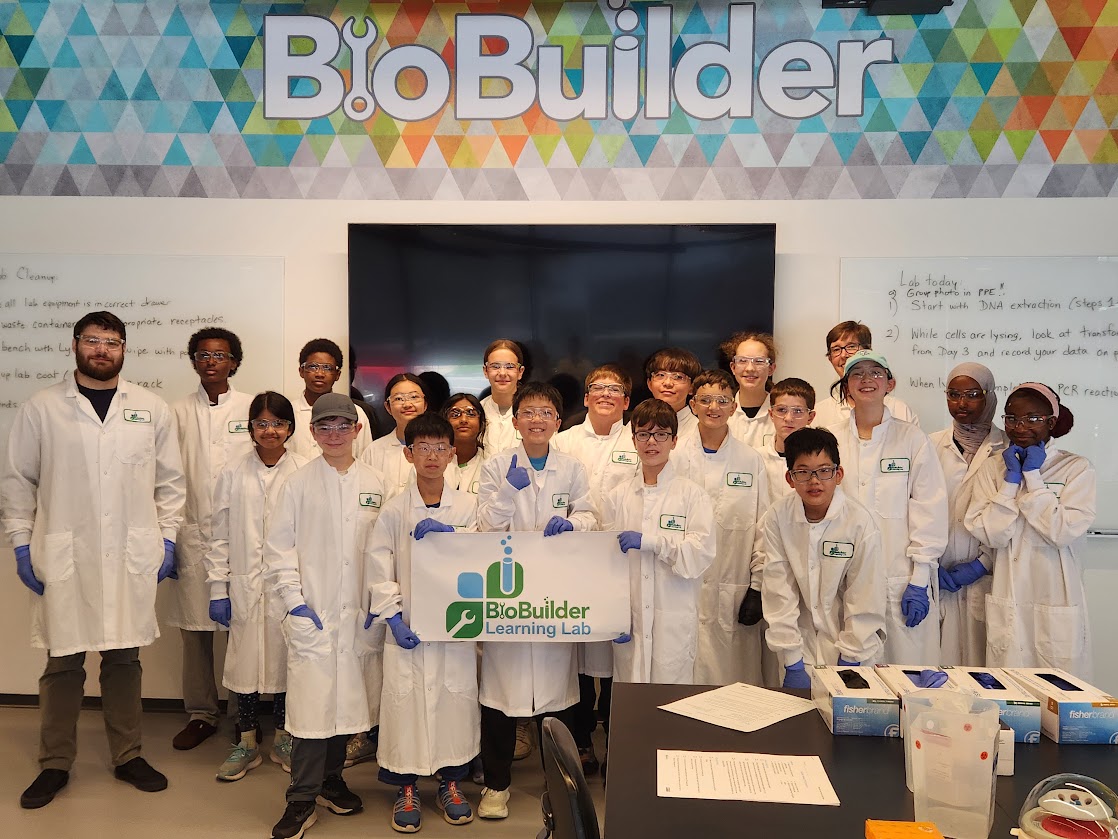
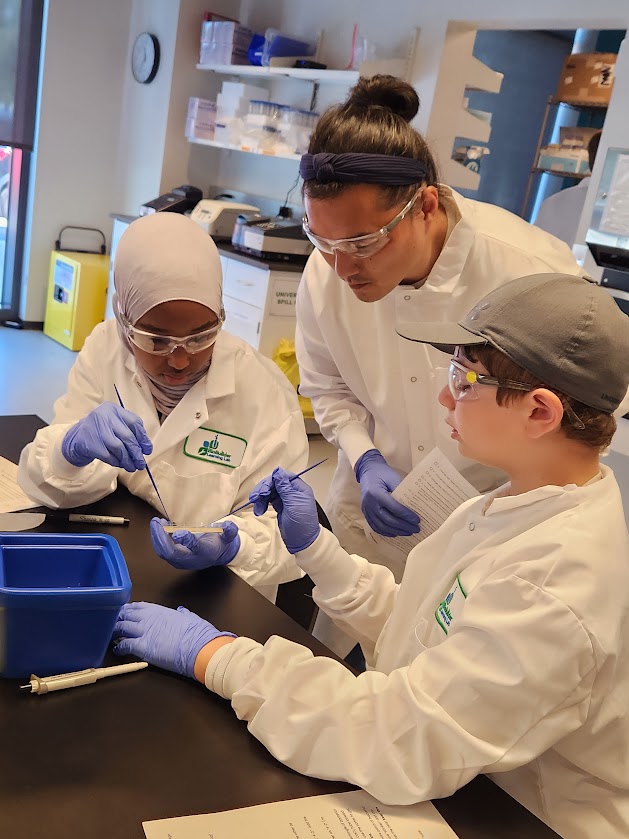
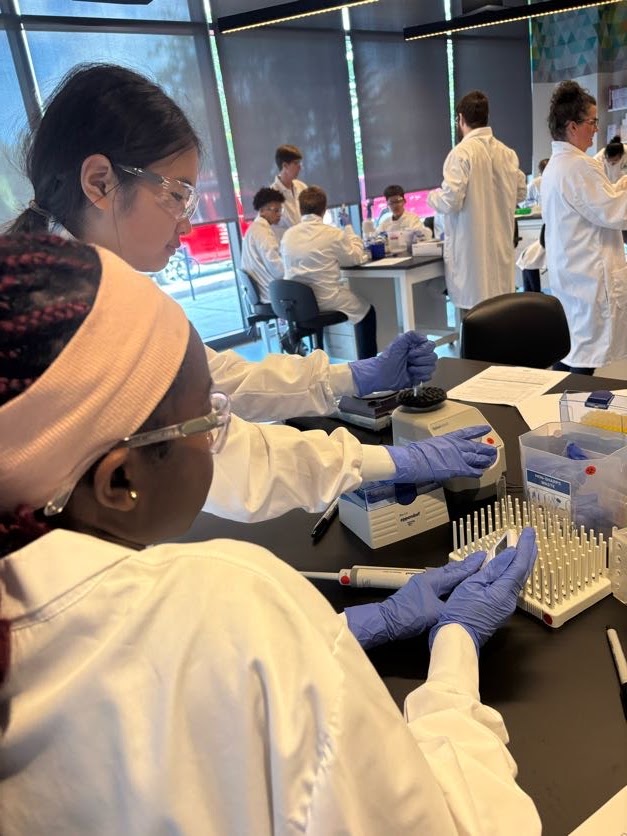
“The students were very receptive to new ideas,” says Switzer, “and the synthetic foods activity sparked a lot of discussion from them!”
The students also asked good questions during the classroom time and demonstrated a solid grasp of the concepts being learned. Seeing the results of the lab activities and discussing why they were seeing them was a highlight for both the students and instructors.
Most of our labs have a built-in ‘twist’ where they have at least one unexpected result, and it is great to get the students thinking and trying to solve the puzzle.”
– Joe Switzer
Another Expedition: Bio class will be at BioBuilder in August, and everyone is looking forward to inspiring and fostering curiosity in another group of bright middle schoolers!
Tennessee Teacher Professional Development
Mid-July was an exciting time for high school STEM teachers in northeast Tennessee! From July 8 to 11, BioBuilder’s Dr. Natalie Kuldell brought BioTechBuilder teacher training to 15 motivated teachers from this region.
The four-day workshop was held at Greeneville High School in Greeneville, Tennessee. The teachers were from seven northeast Tennessee high schools. Eight of them were new to the program and were there for all four days. Seven teachers from last year’s workshop joined in for the last two days to “brush up” on their skills and learn new ones.
The workshop was sponsored by the Niswonger Foundation, a philanthropic organization based in Greeneville with the mission to “create opportunities for individual and community growth through education and other sustainable projects.” The Foundation, in collaboration with local teachers and school leaders, developed the BioSTEM curriculum that aims to prepare students for careers in biotech and life science by combining biology content with career exploration through hands-on technical training.
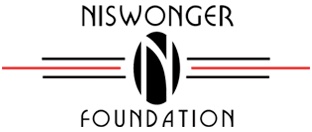
BioBuilder is one of the Foundation’s partners and provides professional development and resources to BioSTEM teachers.
The workshop followed the BioTechBuilder structure of teaching a few key concepts and then immediately moving to the lab to reinforce that learning with hands-on work. The topics the teachers discussed and then demonstrated in the lab were:
- Lab Safety
- Small Volume Metrology – red dye measurements, pipet calibration
- Aseptic Technique – culture prep, viability counts, data analysis
- Solution making – serial dilutions, multisolute solutions
- Foundations (DNA) – miniprep, gel loading
- Foundations (Protein) – β‑Gal enzyme assay
- Applications – BioManufacturing and synthetic biology

The teachers even got to “test” each other in mock microcredentialing demonstrations! These teachers may one day be preparing their own students to seek microcredentials, so going through the testing procedure will be an invaluable experience they can pass on to their students.
The week was chock full of learning, practicing, discussing, and just plain fun!
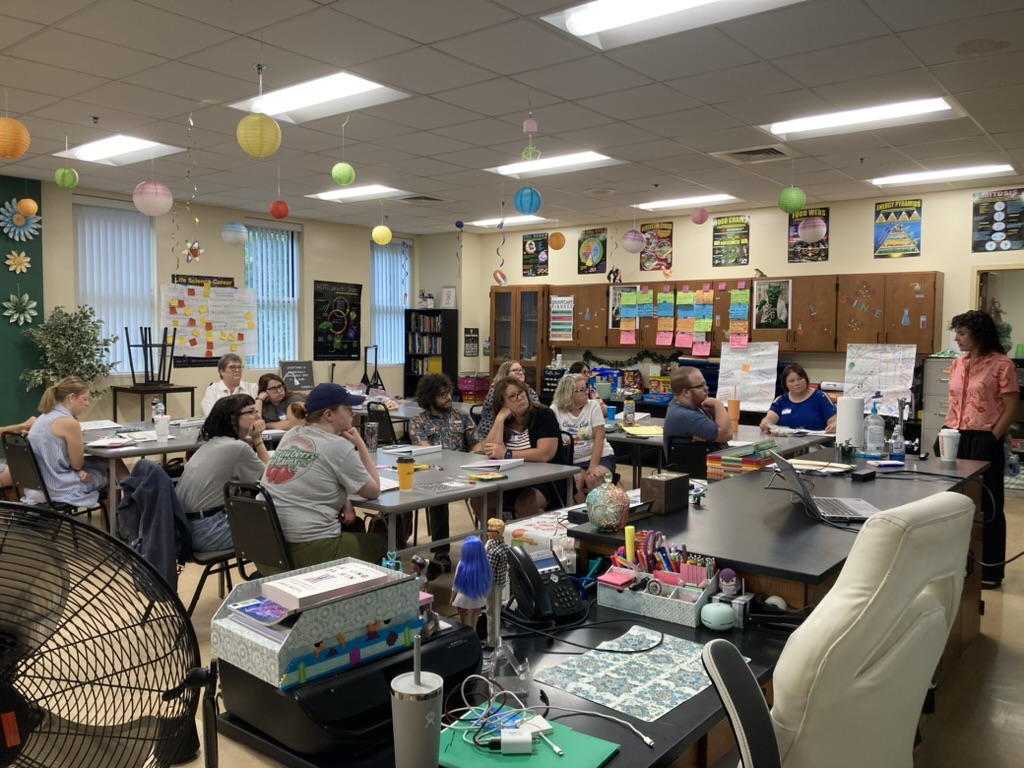
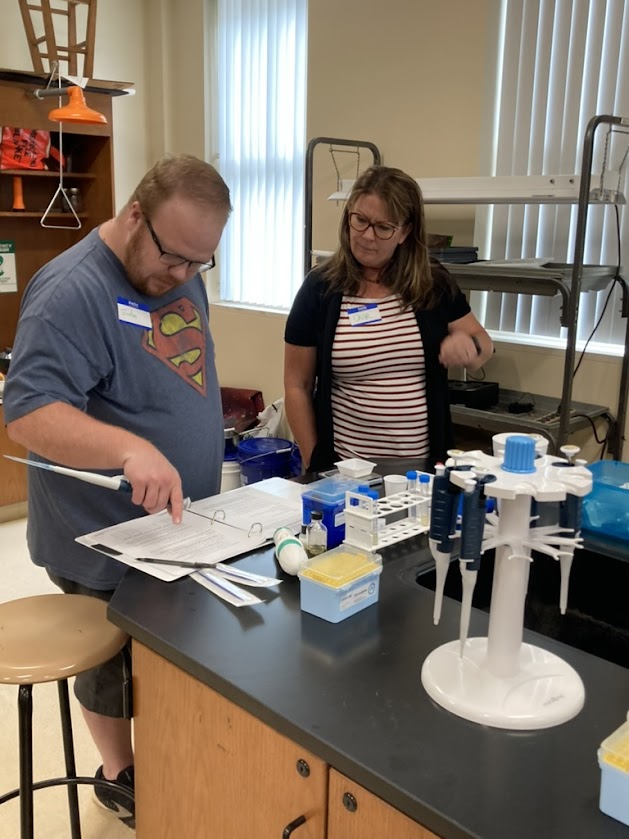
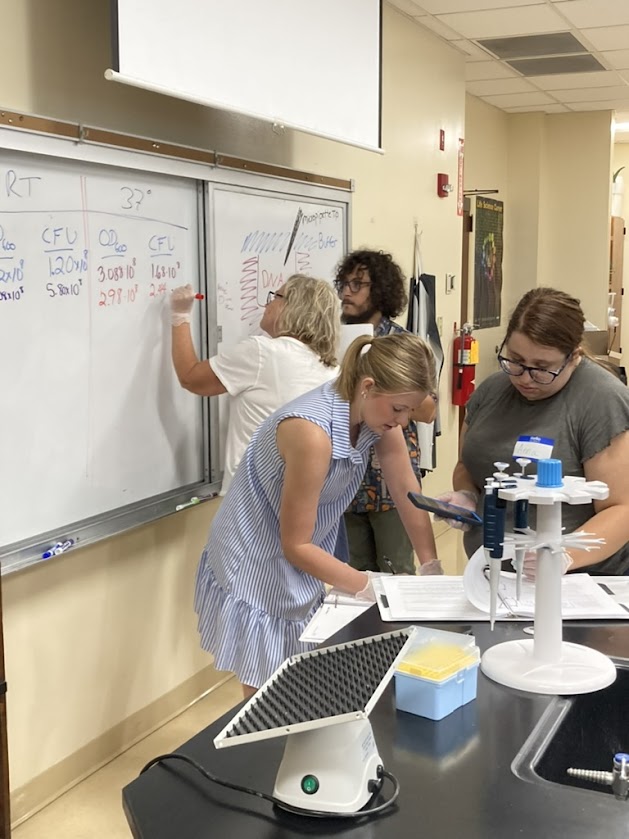
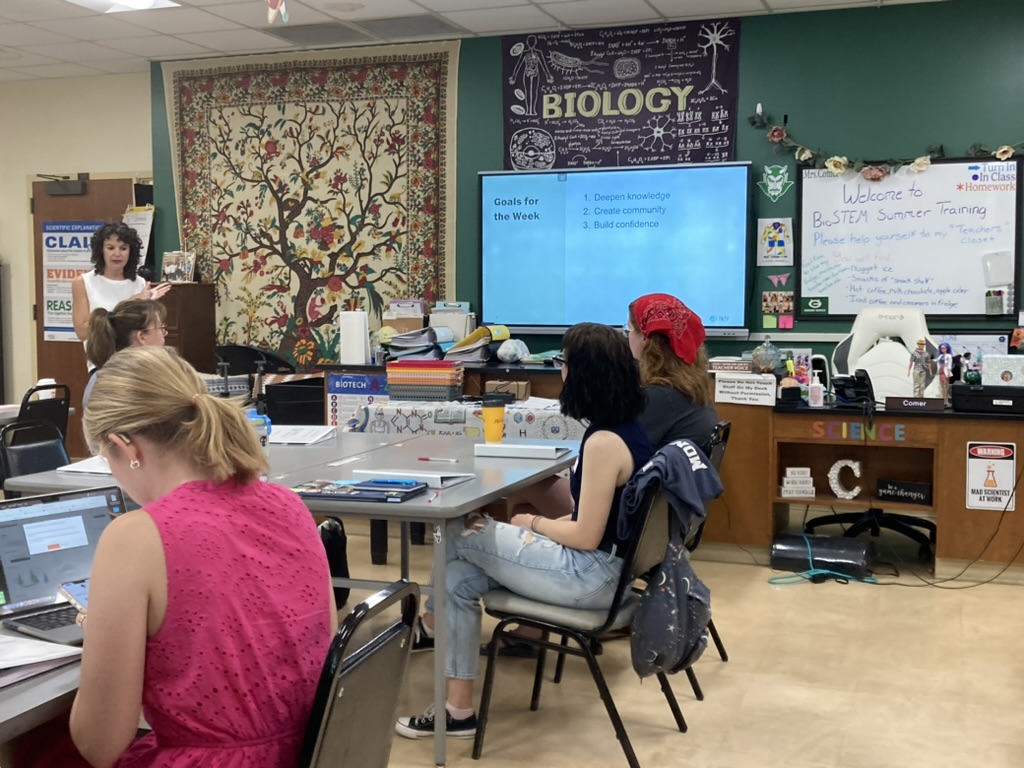
Congratulations to the teachers who are committed to bringing life-changing science to their students!

